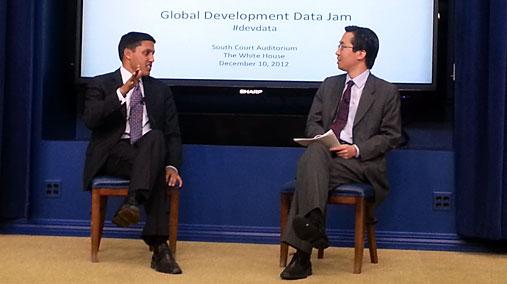Ghana Business News » Partnership to turn 4,000 women in Ghana, others into mobile money entrepreneurs
USAID Development Data Jam in Washington DC, December 2012 had several speakers referring to mobile technology as the common denominator connecting people to the data economy. This is a well written article applying the idea of citizen/government collaboration toward a positive economic outcome. Maura O’Neill, Chief Innovation Officer at USAID and a speaker at the Data Jam is also quoted in this article. Ghana Business News » Partnership to turn 4,000 women in Ghana, others into mobile money entrepreneurs



